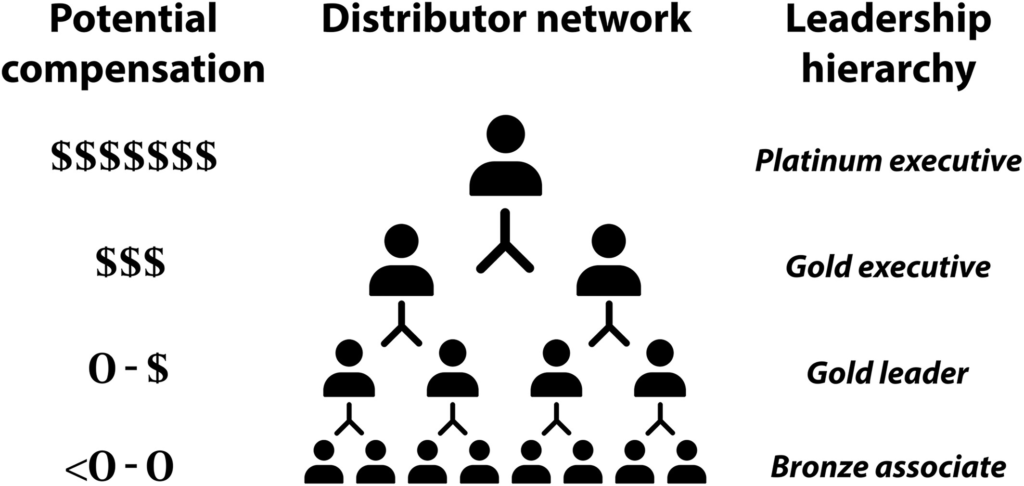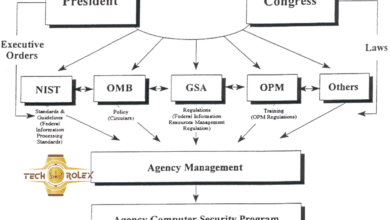How People Drive Social Media Pyramid Schemes (And What You Should Know)

Every day, thousands of people scroll through Instagram, TikTok, or Facebook and unknowingly come across posts that are part of a pyramid scheme. These schemes are made to look like real business opportunities. But the truth is, they can trick people, steal money, and ruin trust. In this article, we will explain what social media pyramid schemes are, how scammers run them, and how you can protect yourself and others from falling into their trap.
What Is a Social Media Pyramid Scheme?
A pyramid scheme is a fake business model that promises you can make money by recruiting other people instead of selling real products or services. On social media, these schemes are made to look like investment opportunities, side hustles, or online jobs. But in the end, only the people at the top of the “pyramid” make any money, and everyone else usually loses.
People running these scams often use platforms like Instagram, Facebook, TikTok, and even LinkedIn to recruit others. They claim you’ll get rich fast, work from anywhere, and earn money just by “joining the team.” But behind the scenes, the only way to earn is to bring in more people, who also pay to join, continuing the cycle.
These scams are not legal, and many countries, including the United States, consider them fraudulent. But because they’re often disguised as legitimate marketing programs or online jobs, it can be hard for people to recognize them at first.
Why Do People Fall for These Schemes?
There are a few simple reasons why people fall for social media pyramid schemes. First, the people promoting them look trustworthy. They often use polished profiles, high-quality videos, and fake testimonials to convince others they’re legit. Second, the idea of making quick money from your phone is appealing, especially for people struggling financially.
Another reason is emotional manipulation. Scammers know how to connect with people who are feeling stuck, broke, or just tired of their 9-to-5 jobs. They promise freedom, fast income, and a better life. For many, that’s enough to at least “give it a try.” And once someone joins, they’re told to keep quiet about the money they spent and to start recruiting others — continuing the cycle.
The use of trigger keywords like “work from home,” “passive income,” “financial freedom,” and “turn $100 into $1,000” can make people act without thinking. Add in fake screenshots of bank balances, flashy lifestyle images, and personal DMs, and it becomes clear how easy it is for anyone to fall into the trap.
How Do They Drive Social Media Pyramid Schemes?
People who drive these schemes are not just random scammers — they often know exactly how to manipulate social media algorithms, go viral, and use engagement tricks to get more eyes on their content. They know how to post at the right times, use trending hashtags, and target people who are most likely to click.

Let’s break down the methods they use:
Using DMs and Group Chats
One of the most common tactics is sending private messages (DMs) to strangers. A message might say something like, “Hey, I saw your profile — are you open to a business opportunity?” or “I help people make $5,000/month from their phone. Want to know how?”
Once someone replies, they’re pulled into a group chat, often filled with others pretending to be successful members. These groups create a feeling of excitement and trust, pressuring new people to join quickly before they “miss out.”
Keywords used: how to make money on Instagram, earn online, work from phone, make money fast, start business online.
Sharing Fake Success Stories
Another way they drive these schemes is by posting fake success stories. You might see someone post, “I made $1,200 in 2 days from this new opportunity — DM me if you’re serious!” But these screenshots are often edited or completely fake. Some even borrow photos from real influencers or use free stock images.
They often use buzzwords like “boss babe,” “hustle culture,” or “residual income.” These fake stories are meant to make you feel like you’re missing out. The truth is, they’re just bait to get more people into the pyramid.
Relevant keywords: get rich quick, online business tips, Instagram side hustle, home-based business.
Creating Trust with Fake Accounts
Scammers also create fake accounts that comment, like, and respond to posts, giving the illusion that a business opportunity is real. You might see comments like “Thank you! I just joined and I’m already making money!” or “Best decision I ever made!”
These accounts help build false trust and social proof, making others think “well, if all these people are doing it, maybe I should too.” In reality, these are just burner accounts made to trick the algorithm and deceive users.
Keywords in use: make money on social media, invest $100 online, turn followers into cash, real work from home jobs.
What Platforms Do Scammers Use the Most?
Scammers go where the people are. And right now, the most-used platforms for pyramid schemes are Instagram, Facebook, TikTok, WhatsApp, and Telegram. These platforms allow them to easily reach thousands of people with one post, video, or message.
Instagram and TikTok are popular because of short videos. These clips go viral fast and don’t need much trust-building. A single trending video showing “easy money” can get millions of views and dozens of new victims.
Facebook is where many scammers create private groups filled with “members” who all talk about their “success.” These groups feel exclusive and make people believe they’re part of something big. WhatsApp and Telegram are used for more direct communication and to pressure new recruits through message blasts and voice notes.
Search-related keywords: best online side hustle 2025, TikTok investment schemes, Instagram work from home scam, DM money-making offer, Telegram passive income group.
Spotting the Warning Signs
Knowing what to look out for can protect you and your friends from falling into these traps. Here are some common red flags of a social media pyramid scheme:
- You’re asked to pay money upfront to “join” or “start.”
- They promise huge earnings with little or no work.
- You’re told the money comes from recruiting others.
- The product (if any) is vague or just a cover-up.
- They use high-pressure tactics like “spots are limited” or “this offer ends tonight.”
- They ask you to keep the opportunity private or secret.
If you see these signs, take a step back. Legitimate opportunities never force you to pay first or keep secrets. If it feels too good to be true, it probably is.
Keywords: how to spot pyramid scheme, warning signs of MLM, real vs fake online job, avoid investment scams, protect against fraud.
Who Do They Target on Social Media?
Scammers are smart — they don’t message everyone. They look for people who are likely to say yes. Usually, these are people going through hard times, looking for change, or spending a lot of time online.

Teens and Young Adults
Young people, especially those between 18–25, are huge targets. Why? Because they’re always on social media, looking for ways to earn extra money, and often don’t have enough real-world experience to recognize scams. Many are also drawn to influencer lifestyles and want to “be their own boss.”
Keywords: make money at 18, TikTok side hustle, earn cash without job, college student income idea.
Stay-at-Home Parents
Stay-at-home moms or dads are also targeted. Scammers know that many parents want to contribute financially without leaving home. They use friendly language like “mompreneur” or “part-time income for parents” to lure them in.
These offers may seem perfect — flexible hours, income from home, and community support. But in truth, they’re often just more recruit-and-repeat pyramid schemes.
Keywords: work from home for moms, stay at home side hustle, mom making money online, parent income ideas 2025.
People in Financial Stress
People dealing with job loss, debt, or low income are especially vulnerable. They may be desperately looking for quick money, and scammers know how to make false promises sound like a lifeline. These victims are often guilted into staying even when things don’t add up.
They’re told, “Just recruit two more people, and you’ll get your money back.” But they rarely do — and the cycle continues.
Search keywords: how to make quick money online, low investment high return, fast income from home, make $1000 a week online, no job no money help.
Is It Legal to Join or Share These Schemes?
In short, no. Joining or sharing a pyramid scheme — even if you didn’t know it was a scam — can have legal consequences. In the United States, pyramid schemes are illegal under the Federal Trade Commission (FTC) laws. Promoting them can result in fines, lawsuits, or worse.
Even if you’re just sharing a post or inviting a friend to join, that still counts as participating in a scam. And when the pyramid eventually collapses (which they always do), people often blame each other — not the original scammer.
That’s why it’s important to report these schemes if you see them. The more people speak up, the fewer victims there will be.
The Bottom Line
Pyramid schemes aren’t new, but social media has made them more dangerous, more believable, and harder to stop. Scammers are getting smarter, and they know exactly how to use social media to manipulate, recruit, and profit from innocent people.
By learning to spot the red flags, understanding the psychology behind the scams, and being aware of who they target, you can help protect yourself — and others — from falling into the trap.


